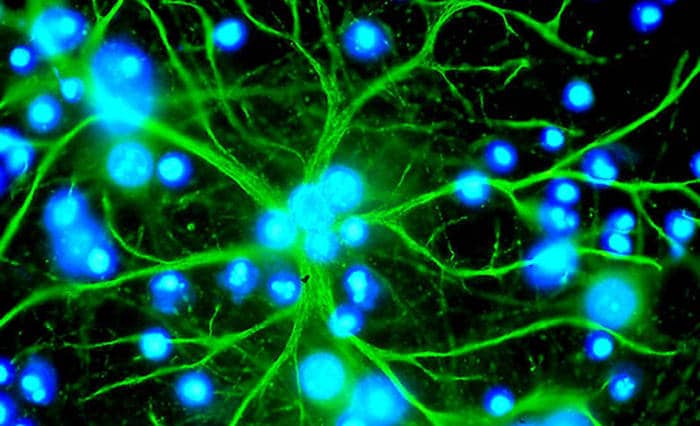Multiple sclerosis is a neurological condition which causes a range of often debilitating and painful symptoms.
Multiple Sclerosis, also known as MS, is one of the most common diseases of the central nervous system. An estimated 2.5 million people worldwide and 400,000 Americans suffer from MS, more commonly in women than men. The causes of MS are still under debate, and there is no currently-known genetic link to MS, though a family history seems to increase the odds of the condition activating. While ongoing lab tests have been in the works for years, there is still no conclusive evidence to pin the source of MS to any viral, bacterial, immunological, or environmental presences or events.
Effects & Symptoms
It is believed that MS may be an autoimmune disorder, wherein the body’s immune system mistakenly attacks healthy tissue. It affects the myelin sheath, a fatty material that insulates nerves, similar to the covering of a wire. With the deterioration of the myelin, the nerves start to lose their ability to transmit messages to the brain, causing the symptoms of MS. The affected areas of the myelin damage are riddled with scar tissue and lesions, mainly in the brain and spinal cord, causing severe problems.
The symptoms of MS can vary greatly depending on the patient, as it is dependent on the frequency of attacks and the damage of the brain and spinal cord. An attack could last for several days, weeks, or months, and in some cases could progress quickly without any remission periods at all.
| Common Symptoms of Multiple Sclerosis |
Symptoms may include:
- Fatigue
- Numbness
- Walking (Gait), Balance, & Coordination Problems
- Bladder Dysfunction
- Bowel Dysfunction
- Vision Problems
- Dizziness and Vertigo
- Sexual Dysfunction
- Pain
- Cognitive Dysfunction
- Emotional Changes
- Depression
- Spasticity
- Speech Disorders
- Swallowing Problems
- Headache
- Hearing Loss
- Seizures
- Tremor
- Respiration / Breathing Problems
- Itching
Diagnosis & Outlook
The only way to diagnose MS is to first rule out all other neurological disorders, and then to pinpoint lesions and areas of scar tissue, and try to determine how often the damage is occurring. Medical history, a neurological exam, and an MRI are usually carefully considered when MS is suspected. This could follow up with blood tests, spinal fluid analysis, and other special tests. While the condition affects the peripheral nervous system, it could also affect the central nervous system in general, leading to symptoms similar to other ailments such as Guillain-Barre Syndrome. This is why ruling out other neurological disorders is key. There is no test that can confirm in specific the problem is MS, rather MS is diagnosed as a result of many specific problems.
Sadly, there is no cure for the disease. There are medicinal remedies available for treatment, but they more commonly change the course of the disease rather than rid it. Because of the intense amount of pain associated with MS, it is common to prescribe pain medications, leading to many MS patients developing dependence issues and harmful side-effects that worsen existing symptoms. Additionally, many patients find the need to seek out extreme therapy, to assist with gaining function in many areas affected by the disease. Physical and occupational therapy, speech therapy, and rehabilitation may be necessary to help patients to deal with their physical limitations and remain functional. Many MS sufferers have a hard time maintaining a constant work schedule, and their family life may also suffer as a result of excessive downtime, frequent doctor and hospital visits, and severe side-effects of medications. Learning to deal with disabling limitations can only improve quality of life.
Despite the physical and emotional toll MS has on its victims, it is not expected to impact the length of life in most cases. While getting diagnosed between 20 and 40 is common and leads to a more difficult life, it is possible to ward off any severe symptoms for 20 or more years, and makes living with MS much more tolerable. Also, while it is possible for MS patients to develop difficulty walking, the majority do not become paralyzed, although many will require the need for walkers or canes at some point in their life.
More Information
If you feel like you may be suffering from symptoms of MS, consult a doctor immediately. Be prepared for a long road of questions and tests, before a definitive diagnosis comes about.
For more information about Multiple Sclerosis, visit the National MS Society nationalmssociety.org.
Note that no information in this article should be used to diagnose or treat any illness or condition; talk to your doctor.
Written By: Jenna McClure
Sources: Medline Plus, National MS Society
Photo credits: Wikimedia Commons, MSconnections.org
